October 28, 2018 | Joanne Morrison

Dr. Miriam Laufer Has Dedicated Her Career to Malaria Research
Miriam Laufer, MD, MPH, Professor of Pediatrics and Associate Director for Malaria Research at the University of Maryland School of Medicine’s (UMSOM) Center for Vaccine Development and Global Health (CVD), was awarded the Joseph Augustin LePrince Medal by the American Society of Tropical Medicine and Hygiene (ASTMH).
The ASTMH Joseph Augustin LePrince Medal is awarded every three years in recognition of outstanding work in the field of malariology. It was first awarded in 1951 to LePrince, whose initial work in the early 1900s and during World War II helped set the stage for research in practical mosquito control measures. Since inception, the medal has been awarded 22 times to leading experts in the field of malaria research and intervention.
Dr. Laufer, who leads UMSOM’s malaria research program, is a pediatric infectious disease specialist with a primary research interest in malaria and global child health. She has more than 15 years of experience in conducting epidemiological and translational research with a focus on translating scientific discovery into clinically relevant strategies to improve the health of people living in malaria-endemic countries. Much of her work, witgh more than $4 million in funding from the National Institutes of Health, has focused on developing new strategies to prevent malaria and tackling the burden of malaria among school-age children. She leads a team of dynamic and world-renowned researchers who work towards accelerating malaria elimination. The medal was awarded on Oct. 28 during a ceremony at the ASTMH’s annual meeting in New Orleans.
 “Miriam Laufer has dedicated her career toward combating malaria, a disease that affects hundreds of millions of people each year, mostly children in low-resource settings,” said Kathleen Neuzil, MD, MPH, Professor of Medicine and Pediatrics and Director of CVD. “She is most-deserving of this prestigious award.”
“Miriam Laufer has dedicated her career toward combating malaria, a disease that affects hundreds of millions of people each year, mostly children in low-resource settings,” said Kathleen Neuzil, MD, MPH, Professor of Medicine and Pediatrics and Director of CVD. “She is most-deserving of this prestigious award.”
“Dr. Laufer’s research has been instrumental in better understanding and controlling malaria, a disease that impacts the most vulnerable individuals,” said UMSOM Dean E. Albert Reece, MD, PhD, MBA, who is also the Executive Vice President for Medical Affairs, University of Maryland, and the John Z. and Akiko K. Bowers Distinguished Professor.
Dr. Laufer received her medical degree at the University of Pennsylvania and completed her residency in pediatrics at Babies and Children’s Hospital of New York (now New York Children’s Hospital) of Columbia University. She completed fellowships in pediatric infectious diseases at Johns Hopkins University and in malaria research at the Center for Vaccine Development at the University of Maryland. She received her MPH from the Bloomberg School of Public Health at Johns Hopkins University.
About the University of Maryland School of Medicine
Now in its third century, the University of Maryland School of Medicine was chartered in 1807 as the first public medical school in the United States. It continues today as one of the fastest growing, top-tier biomedical research enterprises in the world -- with 43 academic departments, centers, institutes, and programs; and a faculty of more than 3,000 physicians, scientists, and allied health professionals, including members of the National Academy of Medicine and the National Academy of Sciences, and a distinguished recipient of the Albert E. Lasker Award in Medical Research. With an operating budget of more than $1 billion, the School of Medicine works closely in partnership with the University of Maryland Medical Center and Medical System to provide research-intensive, academic and clinically-based care for more than 1.2 million patients each year. The School has over 2,500 students, residents, and fellows, and more than $530 million in extramural funding, with most of its academic departments highly ranked among all medical schools in the nation in research funding. As one of the seven professional schools that make up the University of Maryland, Baltimore campus, the School of Medicine has a total workforce of nearly 7,000 individuals. The combined School and Medical System (“University of Maryland Medicine”) has an annual budget of nearly $6 billion and an economic impact more than $15 billion on the state and local community. The School of Medicine faculty, which ranks as the 8th highest among public medical schools in research productivity, is an innovator in translational medicine, with 600 active patents and 24 start-up companies. The School works locally, nationally, and globally, with research and treatment facilities in 36 countries around the world. Visit medschool.umaryland.edu/
About the UMSOM Center for Vaccine Development and Global Health
For over 40 years, researchers in the Center for Vaccine Development and Global Health have worked domestically and internationally to develop, test, and deploy vaccines to aid the world’s underserved populations. CVD is an academic enterprise engaged in the full range of infectious disease intervention from basic laboratory research through vaccine development, pre-clinical and clinical evaluation, large-scale pre-licensure field studies, and post-licensure assessments. CVD has worked to eliminate vaccine-preventable diseases. CVD has created and tested vaccines against cholera, typhoid fever, paratyphoid fever, non-typhoidal salmonella disease, shigellosis (bacillary dysentery), Escherichia coli diarrhea, nosocomial pathogens, tularemia, influenza, and other infectious diseases.
CVD’s research covers the broader goal of improving global health by conducting innovative, leading research in Baltimore and around the world. CVD researchers are developing new and improved ways to diagnose, prevent, treat, control, and eradicate diseases of global impact. Currently, these diseases include malaria, typhoid, shigella and vaccine-preventable infectious diseases. CVD researchers have been involved in critical vaccine development for emerging pathogens such as Zika and Ebola. In addition, CVD’s work focuses on the ever-growing challenge of anti-microbial resistance.
Contact
Office of Public Affairs
655 West Baltimore Street
Bressler Research Building 14-002
Baltimore, Maryland 21201-1559
Contact Media Relations
(410) 706-5260
Related stories
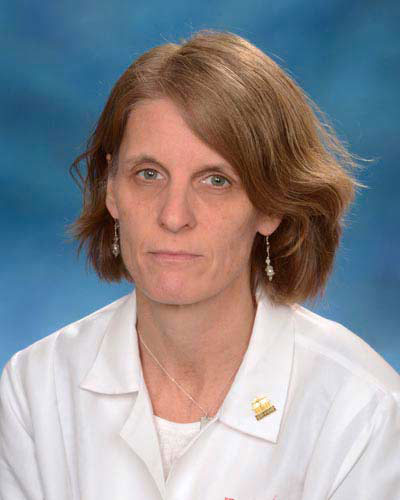
Friday, October 17, 2025
New Monoclonal Antibody Shows Promise for Preventing Malaria Infections
Malaria remains one of the leading causes of death among children in sub-Saharan Africa, claiming more than 600,000 lives each year worldwide with limited efficacy in currently available treatments and vaccines. Now a new early-stage clinical trial found that a novel monoclonal antibody provided dose-dependent full protection against the malaria parasite with minimal side effects.

Tuesday, May 21, 2024
University of Maryland School of Medicine Launches Vaccine Development Program to Prevent Sepsis in Newborns
University of Maryland School of Medicine (UMSOM) researchers at the Center for Vaccine Development and Global Health (CVD) have been awarded up to $3.96 million over three years to develop and test a vaccine in an animal model that could eventually be used in pregnant women to prevent sepsis in newborns and infants.
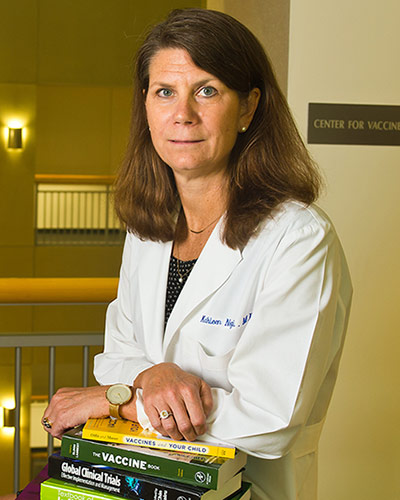
Wednesday, April 05, 2023
UM School of Medicine Researchers Chart Path Forward on Developing mRNA Vaccines for Infections Beyond COVID-19
After helping to develop and test new mRNA technologies for COVID-19 vaccines, University of Maryland School of Medicine (UMSOM) researchers and scientists are turning their attention to utilizing this innovative technology to ward off other infectious diseases like malaria and influenza. Last month, UMSOM faculty in the Center for Vaccine Development and Global Health (CVD) launched a new clinical trial to investigate the use of mRNA technologies to create a vaccine against malaria. CVD Director Kathleen M. Neuzil, MD, MPH, FIDSA also provided commentary in the nation’s leading medical journal on the feasibility of using mRNA to develop a universal influenza vaccine that could eliminate the need for seasonal shots.
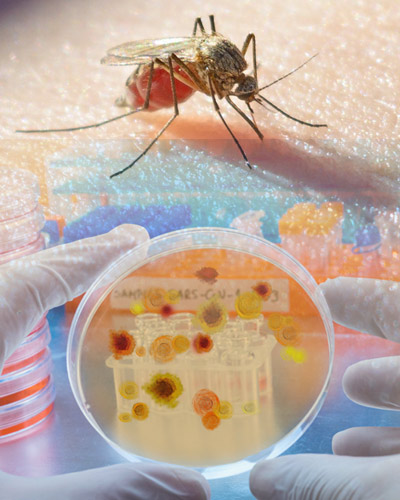
Monday, July 18, 2022
New Genomic Research Shows Why Testing Malaria Vaccines in the Clinic is as Rigorous as Natural Exposure in the Field
Malaria is the deadliest mosquito-borne parasitic infection of humans. In 2021, after a century of research, the World Health Organization (WHO) approved the world’s first malaria vaccine. That vaccine reduces the incidence of malaria infections in young children aged 5-17 months by only 30 percent, meaning that it remains critical to continue developing and testing more effective vaccines.

Wednesday, January 26, 2022
Trial Co-led by University of Maryland School of Medicine Scientist Confirms Safety of “Mix-and-Match” COVID-19 Vaccine Booster Dosing
A University of Maryland School of Medicine (UMSOM), Center for Vaccine Development and Global Health (CVD), expert is co-leading an ongoing study that was pivotal in recommending adults and teens receive booster COVID-19 shots of their choosing starting in fall 2021. The preliminary clinical trial results, reported today in The New England Journal of Medicine, found that is safe and effective to receive boosters that are the same or a different one from the person’s primary vaccine(s).

Wednesday, October 30, 2019
UM School of Medicine's Myron M. Levine, MD, DTPH, to Receive Prestigious Lifetime Award for Five Decades of Pioneering Vaccine Research
Myron M. Levine, MD, DTPH, the Simon and Bessie Grollman Distinguished Professor at the University of Maryland School of Medicine (UMSOM), Associate Dean for Global Health, Vaccinology and Infectious Diseases, and Founder and Former Director of the Center for Vaccine Development and Global Health (CVD) is a co-recipient of the 2020 Research! America Geoffrey Beene Foundation Builders of Science Award for his pioneering vaccine and infectious disease research.

Thursday, October 24, 2019
Dr. James Campbell Makes Baltimore Magazine’s 2019 “Top Docs” List
Dr. Campbell is a pediatric infectious disease specialist conducting important vaccine research

Monday, October 21, 2019
UM School of Medicine's Kathleen M Neuzil Elected as Member of Prestigious National Academy of Medicine
Kathleen M. Neuzil, MD, MPH, Professor of Medicine and Pediatrics and Director of the Center for Vaccine Development and Global Health (CVD) at the University of Maryland School of Medicine (UMSOM), has been elected as a member of the National Academy of Medicine (NAM), in recognition of her pivotal research that has informed and shaped global vaccine and public health policy. Her membership was announced at the annual NAM meeting in Washington, D.C., placing her among the 2,178 U.S. members of this important organization. Membership in the Academy is considered one of the highest honors for individuals who have made major contributions to the advancement of the medical sciences, health care and public health.
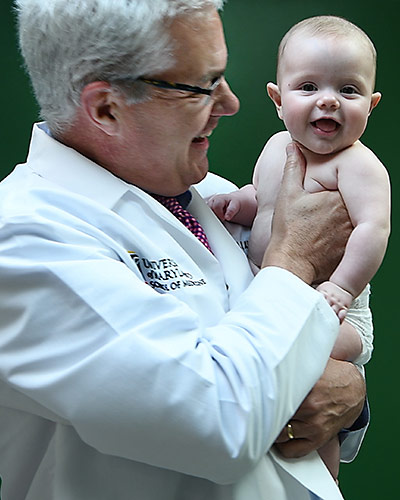
Wednesday, July 17, 2019
Vaccines Tested in UM School of Medicine’s Center for Vaccine Development Protect Children Around the World
For 30 years, the Center for Vaccine Development and Global Health (CVD) at the University of Maryland School of Medicine (UMSOM) has collaborated with the Pediatric Center of Frederick to test vaccines used in pediatric care.
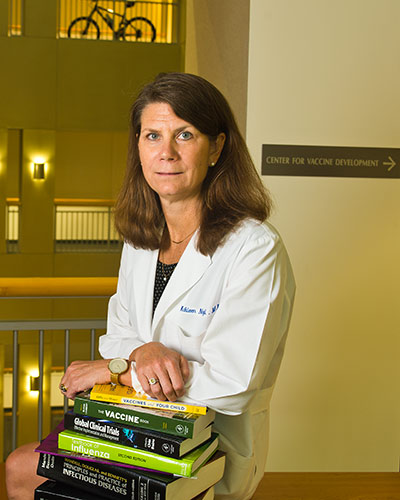
Friday, November 02, 2018
UMSOM Global Health Expert Named to Prestigious World Health Organization Immunization Panel
Kathleen Neuzil, MD, MPH, Professor of Medicine and Pediatrics and Director of the Center for Vaccine Development and Global Health (CVD) at the University of Maryland School of Medicine (UMSOM), has been named to the World Health Organization’s (WHO) Strategic Advisory Group of Experts (SAGE) on Immunization.

Wednesday, June 06, 2018
UMSOM Researchers Find that Silent Carriers of Malaria are Unlikely to Develop the Disease
In regions where malaria illness is widespread, it is common to find many individuals who are infected with malaria parasites (Plasmodium falciparum), but without symptoms. New research conducted by the University of Maryland School of Medicine (UMSOM) shows that treating these silent malaria cases could help stop the spread of malaria to others.

Tuesday, May 15, 2018
Tackling Malaria Transmission in Sub-Saharan Africa
Two malaria experts in the Center for Vaccine Development and Global Health at the University of Maryland School of Medicine wrote a commentary published in the June Issue of The Lancet Global Health discussing the prevalence of malaria in school-age children in sub-Saharan Africa. Miriam Laufer, MD, Associate Professor of Pediatrics and Associate Director for Malaria Research CVD, and Lauren Cohee, MD, Instructor, Pediatrics, noted that often malaria infection is more common in school-age children than younger children and adults.